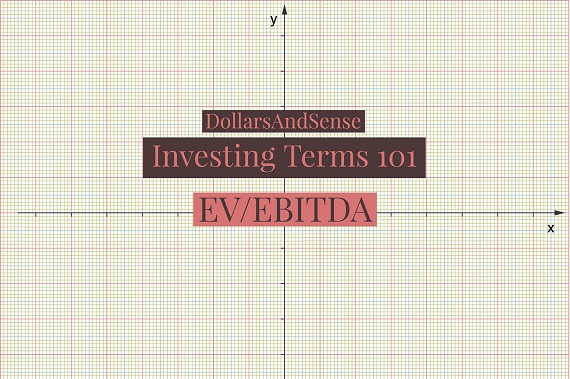|
When you use a stock screener, such as StockFacts offered by SGX, you’ll come across this strange-looking metric with the acronym EV/EBITDA. Today, let’s take a dive into what is it, and learn how can investors use it to make investment decisions. |
What is EV/EBITDA?
Before we explain what the ratio is and what it tells us about a stock, let’s break it down into its two constituents: Enterprise Value (EV) and Earnings Before Interest, Taxes, Depreciation, and Amortisation (EBITDA).
EV is a measure of a company’s total valuation, calculated by adding up the company’s market capitalisation, debt, minority interest, preference shares, and then deducting cash and cash equivalents. In other words:
EV = Market Capitalisation + Debt + Minority Interest + Preference Shares – (Cash & Cash Equivalents)
|
|
EV gives is approximate valuation of the company if it is bought over by an investor.
EBITDA measures a company’s financial performance and indicates its profit-making potential. It is calculated by adding operating profit (which itself is made up of net income, interest, and taxes), depreciation, and amortisation. That is:
EBITDA = Operating Profit + Depreciation + Amortisation
Depreciation is an accounting technique for spreading out the cost of a tangible asset over its usable lifespan. Amortisation is the same, but used to spread out the paying off of debt over a particular period of time.
Because EBITDA eliminates the effects of financing and accounting decisions, it can be used to compare the revenue generation potential of different firms, even if these companies have wildly different debt levels.
Enterprise Multiple = EV/EBITDA
|
|
When you take EV and divide it by EBITDA, you are essentially taking the value of the company and dividing it by its cash earnings. This is known as the Enterprise Multiple, and is used to evaluate whether a company’s share price is fair, especially compared with similar companies.
Intepreting EV/EBITDA
A low EV/EBITDA might hint at a company being undervalued, while the reverse is true.
However, it is important to note that EV/EBITDA ratios differ radically between companies of different industries. You’ll notice that the ‘normal’ EV/EBITDA for technology and bio-tech companies is much higher than slower growth industries. So you should only use it to compare similar businesses.
The ratio is useful for comparing companies across a country’s borders, since it is immune from the effects of individual countries’ tax policies.
EV/EBITDA ratios also offer other benefits from the other popular stock comparison metric, the P/E ratio. In addition to being affected by a company’s debt and capital structure, P/E ratios can be easily ‘gamed’ by executing share buybacks and employing other accounting techniques.
| ♦ Conclusion |
| EV/EBITDA is a useful and widely referenced metric that investors and analysts use to evaluate whether a stock is currently overpriced or undervalued, compared to its peers. After understanding what it is and how it is calculated, you can better make use of that number to shortlist stocks that you might be interested to invest in. |
This article is republished with permission from Dollars and Sense.



 EV gives is approximate valuation of the company if it is bought over by an investor.
EV gives is approximate valuation of the company if it is bought over by an investor.